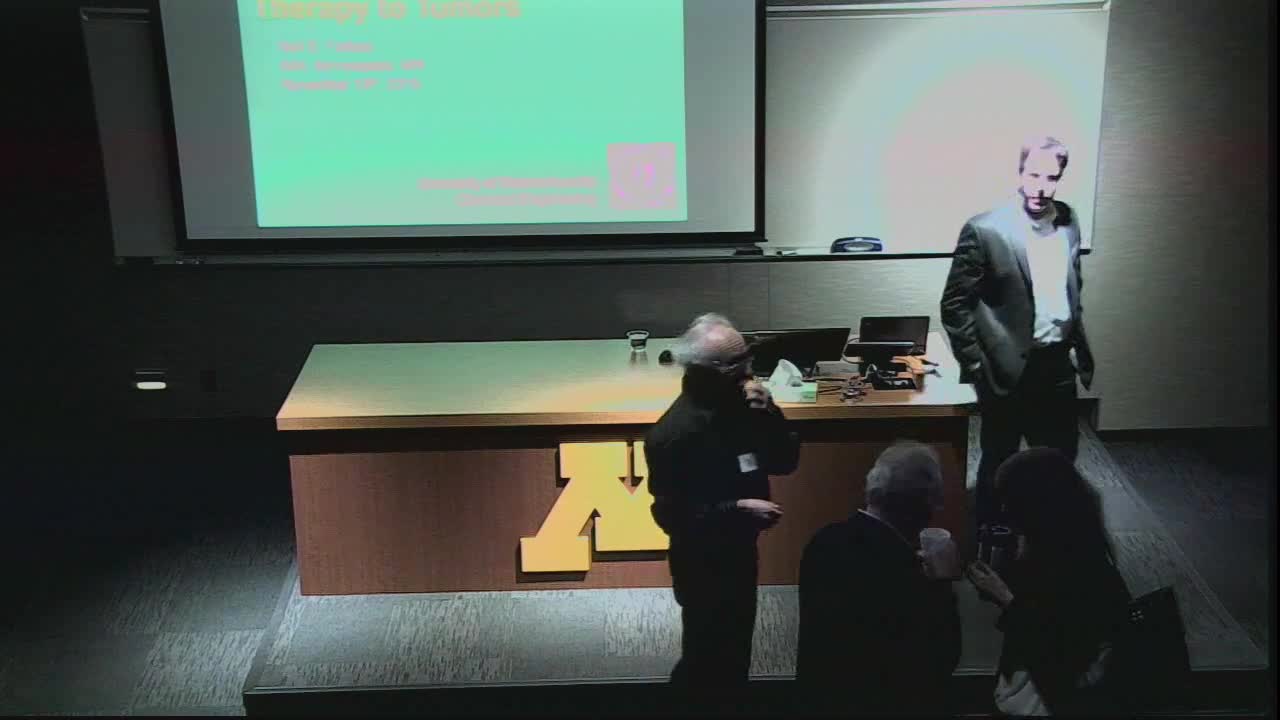Mass Transfer of Drug Delivery and Bacterial Therapy to Tumors
Presenter
November 19, 2015
Abstract
Mass transfer plays a critical role controlling the effectiveness of anticancer therapies. The effectiveness of chemotherapeutic molecules is controlled by their clearance, diffusion, uptake and rate of action. Non-intuitively, there is an optimum in efficacy for both diffusion and uptake. This observation has numerous implications for the design of effective therapies. Importantly, controlling diffusion and uptake should not be overlooked, because simple modifications can render poor-performing molecules much more effective. One non-conventional means to overcome the limits of mass transfer in tumors is using engineered bacteria to deliver therapeutic payloads. Synthetic biology is playing a critical role in the creation of these therapies. Computationally, we have shown that continual production of molecules by bacteria, localized within tumors, has an exponential effect on cell killing. We have also shown that motility has a linear relationship with colonization density. These predictions are supported by experiments in vitro and in mice. We have also shown experimentally that bacteria have three main qualities that enable them to overcome mass transfer limitations. Specifically, bacteria 1) preferentially target tumors, 2) penetrate tissue, and 3) kill non-mitotic cells. Manipulating chemoreceptors on the cell surface can direct bacteria to drug-resistant tumor regions and inducing inflammation can promote colonization by modifying tumor vasculature. In addition, we have engineered Salmonella to secrete α-hemolysin from Staphylococcus aureus (SAH), which kills cells quickly and significantly reduces tumor volume in mice. We have also engineered Salmonella with a quorum-sensing, density-dependent switch that induces protein expression only after bacteria have colonized tumor tissue. This technique will prevent system toxicity after delivery of a therapeutic molecule. These techniques establish Salmonella as a tunable platform for cancer therapy. By understanding the mechanisms of delivery to tumors, new strategies will be developed that will eradicate previously untreatable cancers and reduce patient mortality.
